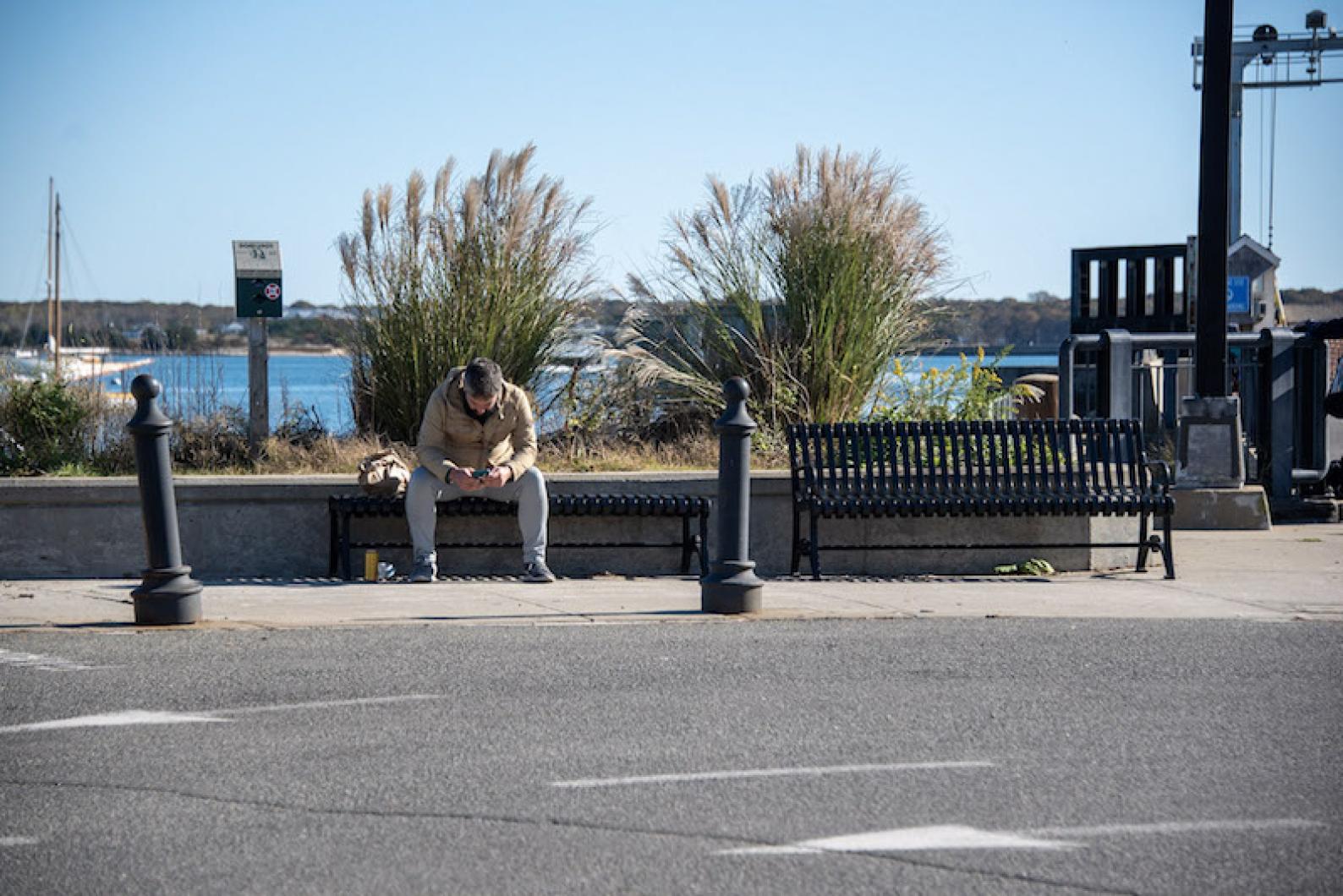After hearing pushback from riders last week, the administrator for the Vineyard Transit Authority said a plan to eliminate Sunday service this winter will be revised.
“There will be service on Sunday,” VTA administrator Angela Grant told her advisory board last Friday. “It is going to be a bit different. . . it is going to be one bus, in addition to the park and ride, running routes 1 and 13.”
She continued: “But there are tradeoffs. We can talk until we are blue in the face about how much service we want . . . but until there are people are on the bus and our ridership begins to rebound, I don’t see [the state] giving us any money.”
The comments came during a meeting of the advisory board that saw wide-ranging discussion as the Island public transit system faces declining ridership, rising expenses and fresh public scrutiny following the unionization of full-time drivers over the summer.
The advisory board will begin meeting monthly instead of quarterly, members said, as they begin to tackle the many issues.
With a second round of off-season service cuts approaching Dec. 1, a final route schedule for the winter season is due to be announced at the end of next week.
A review of first-quarter financials and passenger numbers showed that ridership fell more than 15 per cent in July, August and September. A fare hike that went into effect July 1 brought in an additional $80,000 in revenue, $220,000 short of projections, according to Ms. Grant.
She said the VTA is still facing a potential budget deficit of $1 million for the coming fiscal year.
Labor negotiations and legal fees also brought added costs. Ms. Grant said VTA has paid $307,000 to labor negotiator Greg Dash and special legal counsel since union contract negotiations began in 2015. The monthlong strike early this summer cost $54,000 alone.
“This was not just to fight a union,” advisory board member Elaine Miller said. “There is a negotiation process. If we continue to use terms like ‘fight,’ that is the wrong basis . . . Our role is to represent the interest of the town. . . the VTA could not have stepped into labor negotiation without having legal advice.”
Ms. Grant did not have breakout numbers on the amount paid to replacement drivers during the strike, but she said those drivers worked 3,200 hours in July and 1,600 hours in August. In 2018, VTA drivers worked more than 92,000 hours.
At the end of the meeting, Ms. Miller raised concerns about the fact that VTA advisory board members, who are appointed by their towns, do not have term limits.
There are currently eight advisory board members: one for each town, one community rider representative and one disabled rider representative. Three of the advisory board members have been on the board for more 20 years.
Ms. Miller suggested three-year terms. “You don’t just want to wipe out a board . . . but there are people who sit on a board for over 20 years. . . We have to move forward.”
But Leonard Jason Jr., who has been involved with the VTA since its inception, defended the work of the longtime board members.
“I’ve been here for 33 years,” Mr. Jason said. “You laugh, but we started as one bus running down Main street in Edgartown . . . We’re the ones who took to this, we’re the ones who established the best rural transit authority in the country.” He continued:
“The point is just because you’ve been here, it doesn’t mean you don’t have any fresh ideas. When we started we went to the selectmen and proposed that we want to run this service, and they looked at us like it was pie in the sky. They said sure, go ahead, and you know what? We pulled it off.
“That’s how we got here, because we thought out of the box and thought what we were doing was best for the community. And now you’re saying because we’ve been here too long, it’s time for new blood.”







Comments (1)
Comments
Comment policy »